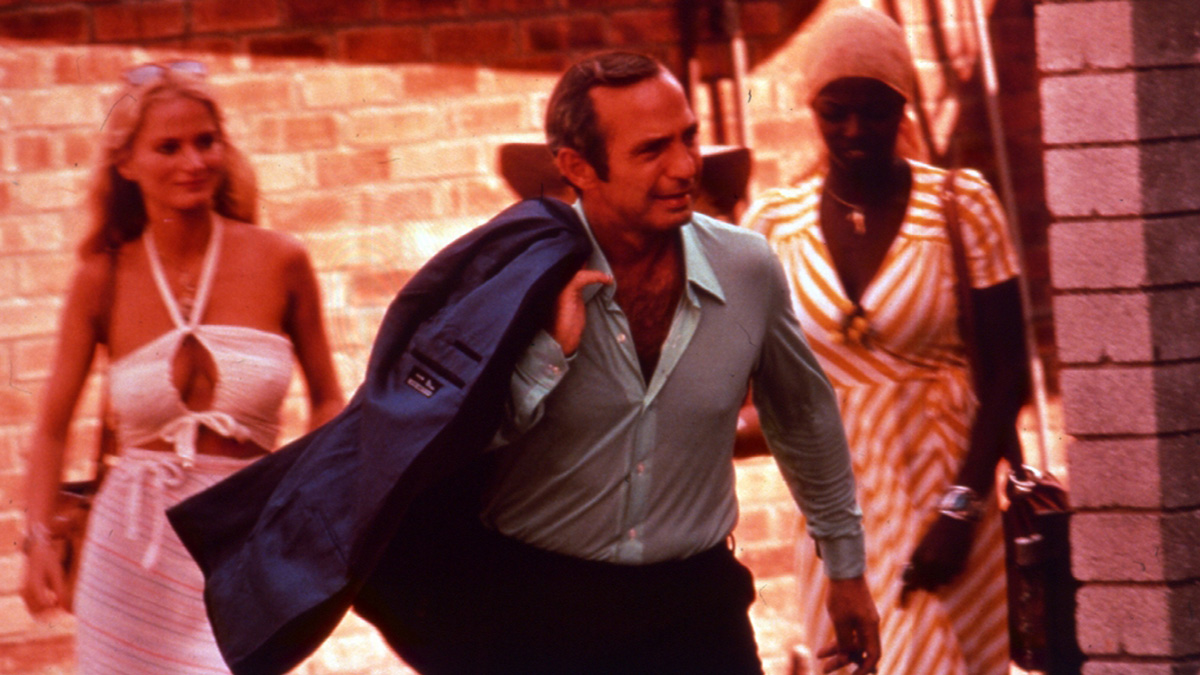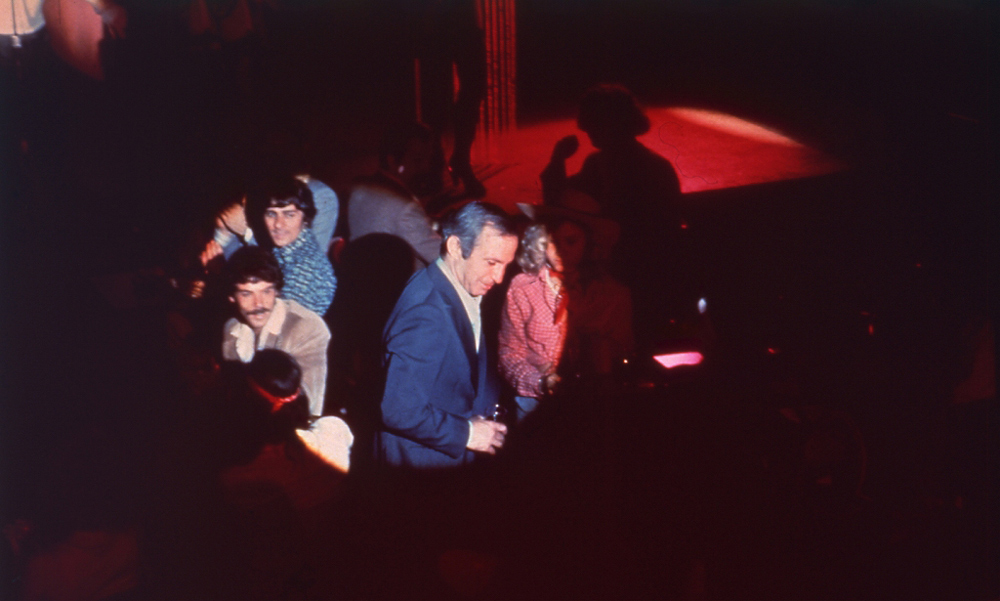
(c)1976 Faces Distribution Corporation.
“The Killing of a Chinese Bookie” A pseudo-family story wrapped in film noir *Note! Contains spoilers.
end of dream
In the final scene, John Cassavetes has Mr. Dandy sing this song:
"Dream and reach out
If you think about it, you'll find it
Let's pursue happiness
I want all my wishes to come true
I can't wait to see it
Your fine appearance, baby
(snip)
What I can give to you is
Yes, nothing else.
Only this passionate love, only this burning passion"
How pure. How innocent. Dreams, happiness, love. With the carefreeness of a child, Mr. Dateman sings with enthusiasm about dreams come true. Then suddenly, a woman appears from behind him, flashes a flame over his shoulder, and interrupts, "How passionate!" Mr. Dateman's expression quickly darkens, making it hard to believe he is a clown, and he leaves the stage with a depressed look on his face. Cassavetes coldly captures the moment when a dream is crushed on a stage where dreams are sung.
And Cosmo, too, stands at the end of his dream. In order to protect his beloved home, Crazy Horse, he killed a Chinese bookie and a gangster, but the bullets remain in his body. Cosmo, smoking a cigarette on the street at night, touches his blood-stained abdomen. He is already dying, and he doesn't have much time left. There is an indescribable sense of loneliness and melancholy. It is a self-referential reflection of Cassavetes himself, who has fought desperately in the film industry while struggling desperately between dreams and reality.

“The Killing of a Chinese Bookie” (c) 1976 Faces Distribution Corporation.
"Nobody liked the film except for a couple of American critics. In a way, it's the one I'm most attached to. When you have a child that nobody loves, you start loving them all the more." (*3)
Cassavetes clearly expresses his love for this film, which is his own theory on art, or rather, on life. Federico Fellini once depicted the suffering of an artist in a frenzy that mixed dreams and fantasies in " 8½ " (1963), but Cassavetes's work is more straightforward and clear. Rather than delving into his own inner world, he shouts out his love for the friends around him and for film itself. His straightforward feelings brought me to tears.
After all, "The Killing of a Chinese Bookie" is a very strange film noir.
(*1), (*3)https://cinephiliabeyond.org/killing-of-a-chinese-bookie/
(*2)https://www.imdb.com/title/tt0074749/trivia/?ref_=tt_trv_trv
Text: Rui Takeshima
A pop culture writer who wants to be kicked by Hit Girl. Host of the web magazine "POP MASTER".
Pre-order "The Killing of a Chinese Bookie" now.
"The Killing of a Chinese Bookie"
"John Cassavetes Retrospective Reprise"
Released nationwide from June 24th (Saturday) at Theater Image Forum and other locations
Distribution: Zaji Films
(c)1976 Faces Distribution Corporation.

